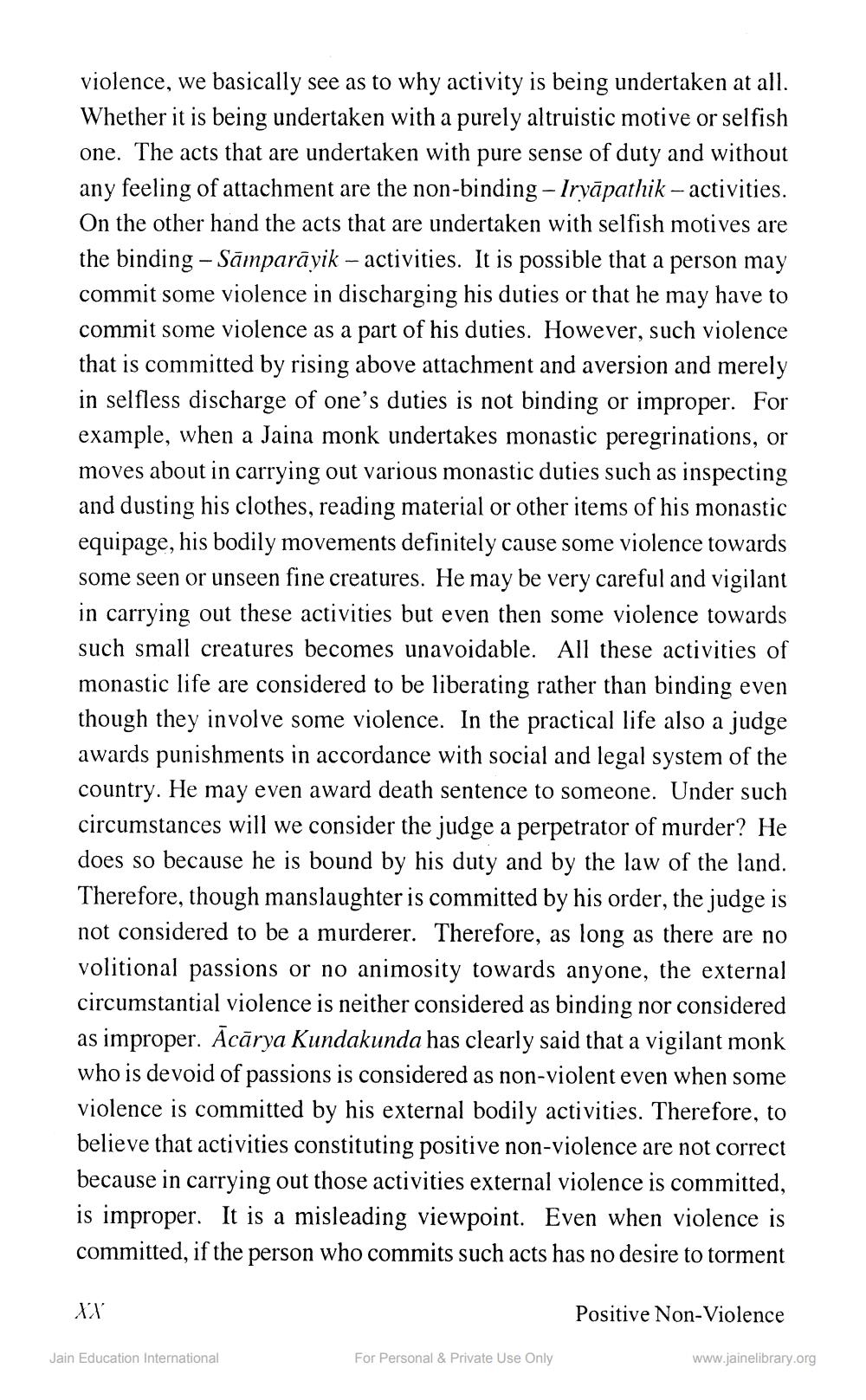________________
violence, we basically see as to why activity is being undertaken at all. Whether it is being undertaken with a purely altruistic motive or selfish one. The acts that are undertaken with pure sense of duty and without any feeling of attachment are the non-binding - Iryāpathik - activities. On the other hand the acts that are undertaken with selfish motives are the binding - Sāmparāyik - activities. It is possible that a person may commit some violence in discharging his duties or that he may have to commit some violence as a part of his duties. However, such violence that is committed by rising above attachment and aversion and merely in selfless discharge of one's duties is not binding or improper. For example, when a Jaina monk undertakes monastic peregrinations, or moves about in carrying out various monastic duties such as inspecting and dusting his clothes, reading material or other items of his monastic equipage, his bodily movements definitely cause some violence towards some seen or unseen fine creatures. He may be very careful and vigilant in carrying out these activities but even then some violence towards such small creatures becomes unavoidable. All these activities of monastic life are considered to be liberating rather than binding even though they involve some violence. In the practical life also a judge awards punishments in accordance with social and legal system of the country. He may even award death sentence to someone. Under such circumstances will we consider the judge a perpetrator of murder? He does so because he is bound by his duty and by the law of the land. Therefore, though manslaughter is committed by his order, the judge is not considered to be a murderer. Therefore, as long as there are no volitional passions or no animosity towards anyone, the external circumstantial violence is neither considered as binding nor considered as improper. Ācārya Kundakunda has clearly said that a vigilant monk who is devoid of passions is considered as non-violent even when some violence is committed by his external bodily activities. Therefore, to believe that activities constituting positive non-violence are not correct because in carrying out those activities external violence is committed, is improper. It is a misleading viewpoint. Even when violence is committed, if the person who commits such acts has no desire to torment
XX
Positive Non-Violence
Jain Education International
For Personal & Private Use Only
www.jainelibrary.org




